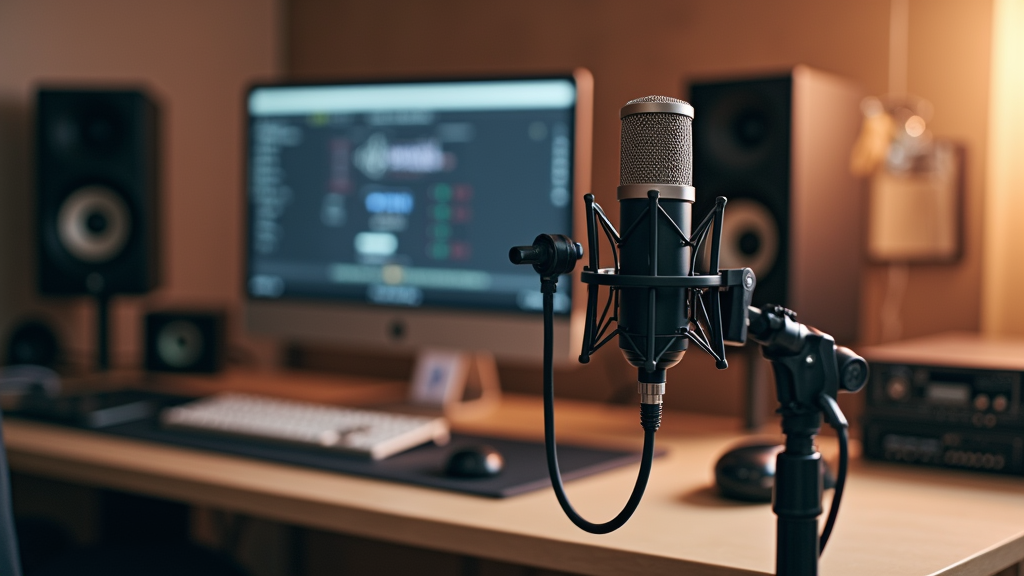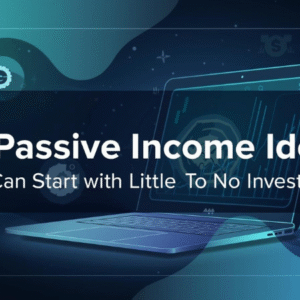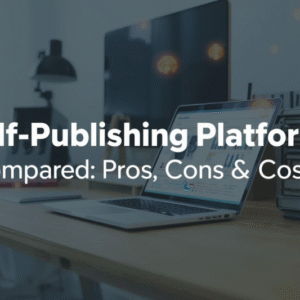Creating and selling audiobooks has become a rewarding niche in today’s digital marketplace. Many authors and content creators are stumbling upon the benefits of offering their work in audio format, as it attracts new audiences and generates additional income. In this article, I share practical steps and insights that can help you launch your own audiobook business and tap into this growing market.
Turn Your Passion into Earnings
Get the Tools, Training and Support you need. All in One Place
Join a a Vibrant and Global Community of
Marketers and Entrepreneurs from Around the World
Essential Tools for Creating High-Quality Audiobooks
Getting started in audiobook production begins with the right equipment. While top-notch studios capture professional-quality audio, beginners can create enjoyable and clear sound with a few basic tools. Investing in good equipment helps ensure that your final product is polished and engaging for every listener.
The following are some of the key tools that can serve as a foundation for your audiobook creation process:
- Quality Microphone: A decent microphone can make all the difference when capturing clear dialogue and narration. Look for a model that minimizes background noise and offers natural sound.
- Soundproofing Materials: Even a small home studio can benefit from basic soundproofing techniques. Using foam panels or even household items can reduce echo and ambient noise, making your recordings crisper.
- Audio Interface: This device amplifies your microphone’s output and converts analog signals into digital audio, playing a key role in achieving clear recordings.
- Recording Software: Free or affordable audio editing software is widely available. Such tools let you record, edit, and mix your tracks effectively, ensuring you get a professional-grade outcome.
Having these tools at your disposal not only creates a better listening experience for your audience but also helps build a professional foundation as you grow your audiobook business. It is important to invest time in learning how each component works and how they can be combined to produce a next-level cool final product.
Getting Started with Audiobook Production
Before you jump in, it’s important to familiarize yourself with the process of audiobook production. From recording your narration to editing and finalizing your audio, planning each step can save time and improve your results substantially.
Here are some steps you might consider when beginning your audiobook project:
- Select Your Content: Decide on the book or content you want to convert into audio. This could be your own work or public domain material that is free to use. Taking time to choose content that resonates with listeners is very important.
- Set Up Your Studio: Even if you’re working from home, creating a quiet, dedicated space for recording is essential. Clear out background noise and set up your soundproofing tools to help you achieve high-quality recordings.
- Test Your Equipment: Run some practice recordings to test the microphone, audio interface, and software. This trial run can help you adjust settings and troubleshoot any issues, ensuring you’re all set before the main recording session begins.
- Develop a Workflow: Map out a schedule for recording in manageable segments. Breaking your work into smaller sessions and taking regular breaks prevents voice fatigue, which in turn maintains the clarity and quality of your narration.
- Edit and Give a Boost: Use audio editing software to remove mistakes, add necessary sound effects, and balance audio levels. A clean audio track not only boosts the professionalism of your final product but also keeps your listeners engaged throughout the entire experience.
Following these steps not only gets you started on the right foot, it also builds good habits that become essential in producing audiobooks your audience will appreciate. The more you refine your process, the easier it becomes to produce consistent, high-quality recordings.
Considerations in the Audiobook Market
Jumping into the audiobook niche involves more than just recording your content. There are several factors to weigh before you invest heavily in production equipment and marketing efforts. Understanding these factors can help you navigate the marketplace with greater confidence.
Some challenges and considerations you should be aware of include:
- Voice Quality and Presentation: The quality of narration is key. While some creators naturally have a pleasing voice, others might consider voice training or even hiring professional narrators as their skills develop. Continual practice and feedback go a long way in perfecting your delivery.
- Market Research: Before you produce an audiobook, take a good look at current trends in audiobook genres. Knowing what listeners are looking for and tracking down popular topics can shape your content strategy and improve your chances of success.
- Distribution Platforms: There are several channels available for audiobooks. Major platforms like Audible, iTunes, and others have their specific requirements and revenue models. Researching these thoroughly can help you decide the best avenue for selling your work.
- Copyright and Licensing: If you’re adapting someone else’s work or a public domain text, understanding rights and licenses is really important to avoid legal issues down the line.
- Initial Investment: Quality audio production may require upfront costs. Balancing your budget between production tools, marketing, and distribution fees is essential for long-term success and growth in this competitive market.
By weighing these factors, you can plan effectively and avoid common pitfalls in the audiobook market. With clear goals and awareness of potential challenges, you’ll be better positioned for steady growth and flexibility in your productions.

Advanced Tips and Tricks for Audiobook Creation and Sales
Once you’re comfortable with the basics of production and distribution, stepping up your game with some advanced strategies can be very worthwhile. These tips go beyond simple recording and editing, focusing on refining your product and broadening your reach in innovative ways.
Focus on Editing and Post-Production: Spend additional time in the editing phase to ensure your recordings are as flawless as possible. Advanced editing techniques can breathe new life into your audio, and employing noise reduction tools can help achieve that studio-quality sound. Experiment with varying filters and effects to truly polish your final track.
Use High-Quality Sound Effects and Music: Although not every audiobook needs constant background music, the right sound effects or subtle musical scores can dramatically support the narrative without overwhelming your narration. Choose audio elements that complement the tone and mood of your content, giving your project an extra boost.
Create a Consistent Format: Strive for consistency in volume, pacing, and tone across chapters. This uniform approach makes your audiobook feel professional and helps your audience stay engaged from start to finish. Consistency builds trust and makes it easier for listeners to follow along.
Check Out Multiple Sales Channels: Beyond the major platforms, consider selling your audiobooks from your own website or through partner networks. This diversification not only increases your revenue streams but also helps you connect with niche audiences that may be overlooked by larger distributors.
Collect Feedback and Iterate: After releasing your audiobook, ask your audience for feedback. Reviews and ratings are invaluable when it comes to fine-tuning your approach. Small tweaks based on listener insights can make a significant difference in both quality and appeal.
These strategies not only improve your production process but can also lead to more effective marketing and higher customer satisfaction. Dedicate time to experimenting with various methods, and don’t be afraid to adjust your approach as you learn what works best for you.
The Basics: Tools and Resources for Emerging Audiobook Creators
For those just starting out, there are plenty of resources available to help you along the way. Whether you are learning the basics of audio editing or checking in on the latest distribution strategies, these tools can provide a strong foundation in the audiobook world.
Consider the following resources as you begin your adventure:
- Online Tutorials: Platforms like YouTube and specialized forums offer free tutorials on everything from recording techniques to advanced editing software usage. These video guides can be a great starting point if you’re new to the field.
- Books and Article Guides: Written guides and eBooks can offer step-by-step instructions and useful insights into both the production and distribution aspects of audiobooks. They serve as a reference whenever you need to clear things up regarding technical details.
- Software Tools: Free software like Audacity provides powerful editing capabilities for beginners, while paid options like Adobe Audition offer next stage features as your skills grow.
- Community Forums: Participate in online communities that focus on audiobook production. These groups are invaluable for advice, troubleshooting tips, and encouragement from fellow creators who understand the challenges and triumphs of audio work.
- Podcast and Webinar Series: Many experienced producers share their insights through podcasts and live webinars. Attending these sessions is a fantastic way to keep an eye out for current trends and pick up practical advice for elevating your craft further.
Using these resources not only builds your technical skills but also connects you with a broader community of creators who are eager to share knowledge and offer support. The more informed you are, the better equipped you will be to produce audiobooks that resonate with listeners over the long term.
Looking for a training platform that actually works?
I’ve put together a full walkthrough of the affiliate marketing training that helped me build everything I have today. It’s practical, beginner-friendly, and you can try it out for free to see if it suits you.
Take a look at my honest review and see if it’s the right fit for you.
Frequently Asked Questions
Below are some common questions that beginners in the audiobook niche might have:
Question: What kind of content works best for audiobooks?
Answer: Literary works, instructional guides, and even fiction tend to perform well in audio format. The key is to choose content that shines when read aloud and connects with listeners on an emotional level.
Question: Do I need professional voice training?
Answer: While professional training can give a boost to your narration, many creators start by teaching themselves using online courses and self-practice. Over time, as you gain experience, you might decide to invest in additional training if needed.
Question: How do I handle distribution and rights management?
Answer: It is crucial to research distribution platforms and understand their requirements in detail. If your content is copyrighted, make sure you secure the necessary rights or licenses before production to avoid complications later on.
Question: What is the typical turnaround time for producing an audiobook?
Answer: Production time can vary widely based on the length of the content and your familiarity with editing software. Planning ahead and setting realistic timelines is very important to maintain both quality and consistency.
Final Thoughts
Finding success in the audiobook niche means combining creativity with practical business strategies. Whether you start by recording your own narration or collaborate with talented voice artists, entering this field isn’t simply about sharing stories. It is also about building a sustainable business step by step.
With a solid understanding of the tools needed, a well-planned production process, and a clear distribution strategy, you can enter the world of audiobooks and create content that truly resonates with listeners. Embrace experimentation, learn from every project, and build your reputation one audiobook at a time.
The audiobook market is constantly evolving. Experienced and innovative creators are continuously finding fresh ways to engage audiences and break new ground. This growth is a sign that the opportunities are abundant. Remember, every project is a chance to learn and get involved in a dynamic and thriving industry.
As you move forward, keep investing in your skills, gather feedback regularly, and remain open to changing your approach as new trends appear. The strategies discussed above are just a starting point; over time, you will discover more techniques that work best for your unique style and goals. Keep experimenting, stay determined, and enjoy the creative ride.
Start experimenting with your own audiobook projects today, and reveal all the possibilities that audio storytelling has to offer!
Let’s make it happen!





